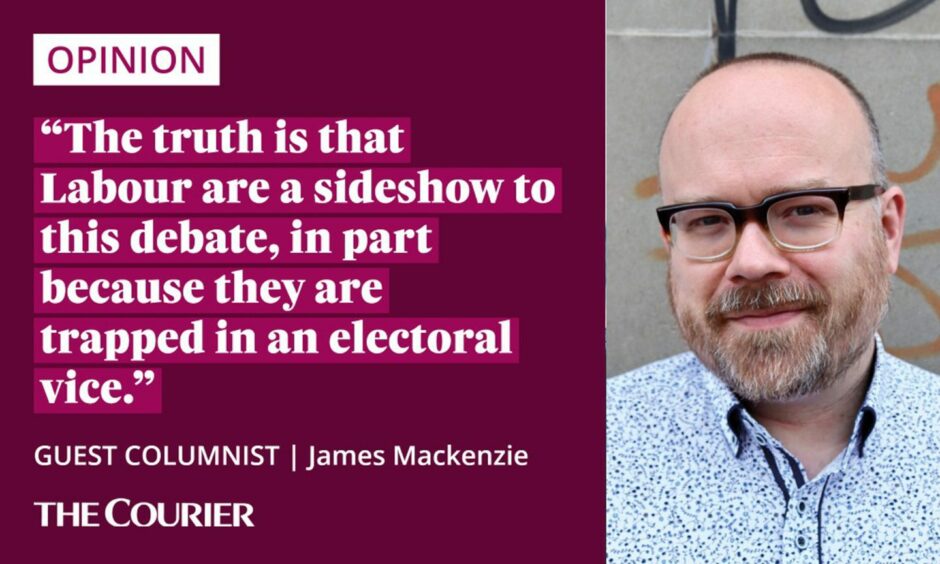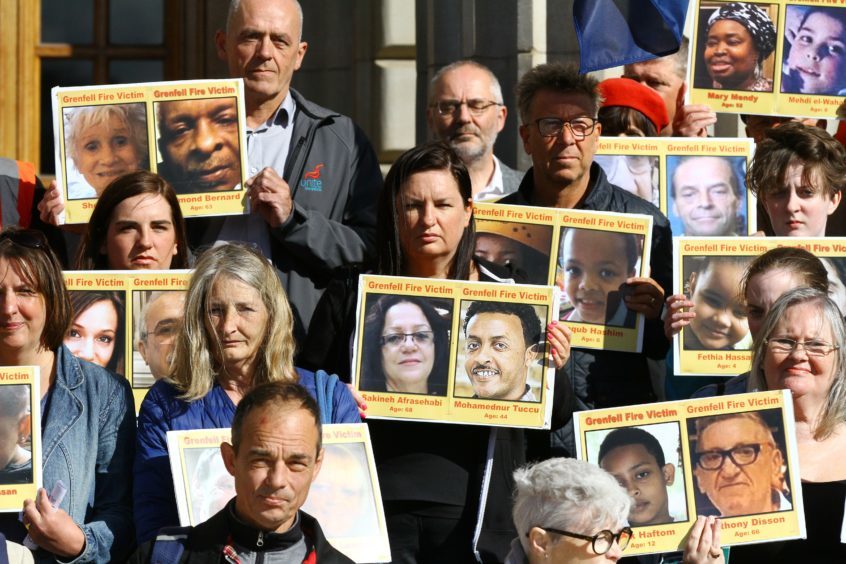Following the First Minister’s announcement of her proposed timing for a second Scottish independence referendum, a curious message spread among both Labour politicians and those older newspaper commentators who yearn for the glory days of Blairism.
“They’re desperate to hold Indyref2 next year because they want Boris as an opponent,” went the line.
Or, to flip it on its head: “They’re afraid to delay the Scottish independence referendum because they fear a Labour government”.
Presumably Labour politicians feel good saying it because they enjoy the illusion that it’s still all about them.
That’s despite them having been out of power at both Holyrood and Westminster for more than a decade.

For anti-independence commentators, some pretty contorted logic is required for to fit that narrative.
Two parties won a Holyrood mandate on an independence platform. And now they are pressing ahead with plans for a referendum on independence.
And yet, doing so is somehow a sign of a lack of confidence on the pro-independence side?
Labour offers little alternative – on Scottish independence and elsewhere
An argument with more weaknesses would be hard to concoct.
Are we really expected to believe that this SNP/Green government would not be pushing for an independence vote next year if Labour were in power at Westminster?
It’s an idea that’s profoundly insulting to the electorate too.
Why would Labour politicians want to imply that voters (presumably they mean Labour voters?) might make the mistake of choosing independence on the transient basis that, like most Tory MPs, they despise the current Prime Minister?
Powerful from @Keir_Starmer today at #PMQs.
While the SNP are happy to keep the Tories in Downing Street, Labour want a general election to replace this corrupt, out of touch Tory Government.
Scotland and the UK deserve better.
— Anas Sarwar (@AnasSarwar) July 6, 2022
The evidential base simply isn’t there for the theory that “it is more likely to be won with a Tory PM”.
David Cameron was also unpopular in Scotland at the time of the 2014 referendum. And he didn’t swing it for Yes.
This argument also relies on the idea that a Labour government at Westminster will bring radical change, and inspire Scottish voters to conclude that the constitutional status quo serves them better.
Many adjectives have been applied to Sir Keir Starmer. But I have yet to see anyone try to make “inspirational” work.
Week by week he trashes the commitments he stood on, performatively opposing even the mildest social democratic policies, lest the commentariat call him the heir to Corbyn.
Slow to comment on the Rwanda deportations… Stern letters to anyone on his front bench who attends a picket line… Zero campaigning on climate change.
Remain-minded columnists attacked Corbyn as a crypto-Leaver. But they ended up helping to deliver a Labour Party that doesn’t support a return to EU membership, or even freedom of movement.
Independence debate is not going away
The truth is that Labour are a sideshow to this debate, in part because they are trapped in an electoral vice.
They can’t win back left voters without becoming more sympathetic to independence, or at least Scotland’s right to choose.
And if they inch in that direction they risk losing more unionist voters to the Tories.
Labour just want it all to go away, and I sympathise with that.
I too want our politics to move on, to address the series of crises we face, over drug deaths, the climate, biodiversity, cost of living, inequality, transphobia, and all the rest.
But, like it or not, none of that can be dealt with while roughly half the population want independence.
🚨 BREAKING: First Minister @NicolaSturgeon Scotland’s independence referendum will be held on the 19th of October 2023.
🏴 The campaign is on! Join over half a million people and pledge your support for Scottish independence at https://t.co/2gUjKuELTC pic.twitter.com/YZGCdCCZRB
— Yes (@YesScot) June 28, 2022
A clear majority of Parliament was elected on that mandate. Yet the Westminster parties insist there is no democratic route to a vote next year.
Scotland can do better on democracy
Democracy remains at the heart of the case for independence.
Smaller democracies are typically more accessible to activists and community groups, less likely to be bound by out of date traditions, and less likely to be captured by corporate lobbyists.
We all get just one MP who may or may not care about your issue, versus the eight MSPs we each have at Holyrood, at least one of whom is likely to care.
Those MPs mostly have safe seats, too: in 2019, just 81 out of 650 seats changed hands.
I mostly work for environmental campaigns. And I have no idea how I would even try to get them heard at Westminster.
It’s almost as unresponsive a system as the US government. Just ask the families of the Grenfell victims or those caught up in the Windrush scandal.
In lieu of a proper transparent constitution, Westminster has a patchwork of old legislation, court rulings and conventions.
Starting again, it seems unlikely Scotland would make something so opaque or cack-handed.
Voters in Scotland are entitled to their say
I will not vote Yes simply because Westminster is an open sewer of sexual assault, corruption, bigotry and incompetence.
And I will not vote Yes because Boris Johnson happens to be PM (at the time of writing anyway).
I would want independence, even if Westminster right now had the most perfect political leadership imaginable.
And the reality is far from that.
It would be good for Scotland to have neighbours that lead and inspire.
But however the rest of the UK wishes to be governed, voters in Scotland, via our elected Parliament, have the right to have the question asked.
James Mackenzie is a freelance media and public affairs consultant and former head of communications for the Scottish Greens.













Conversation